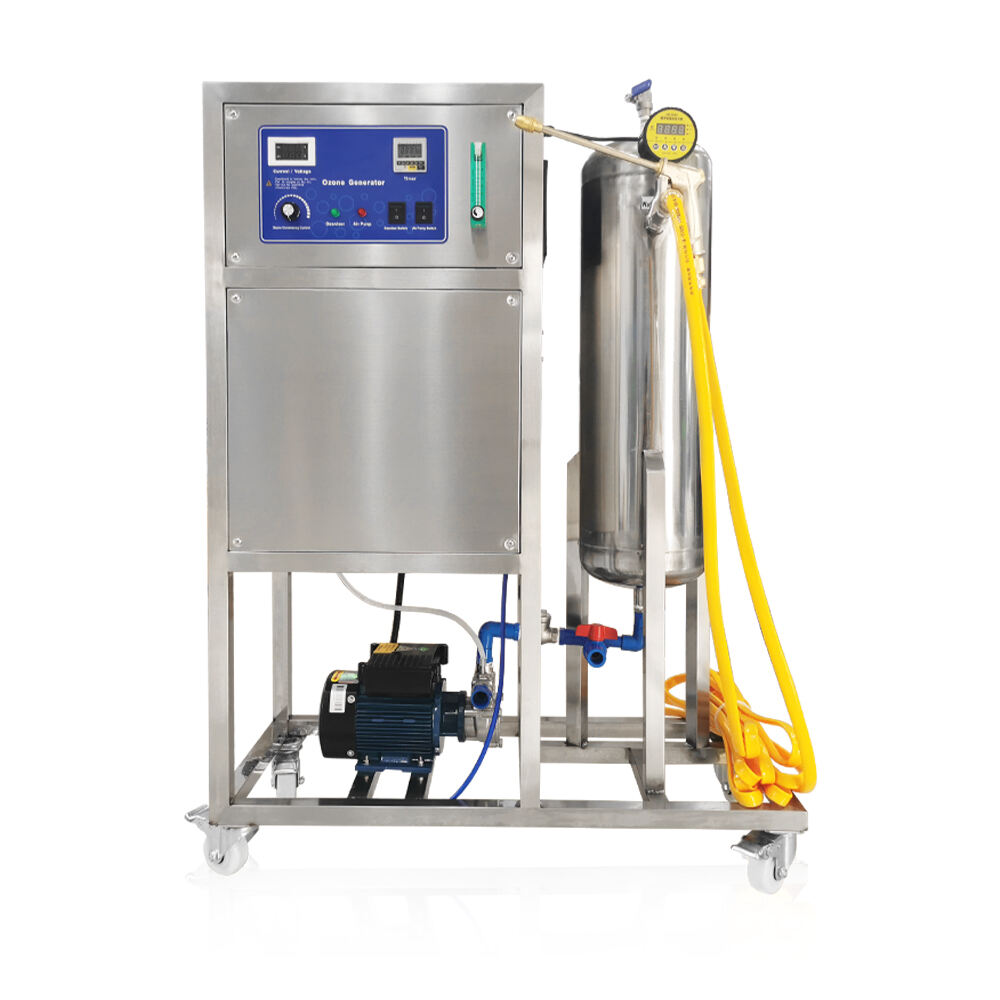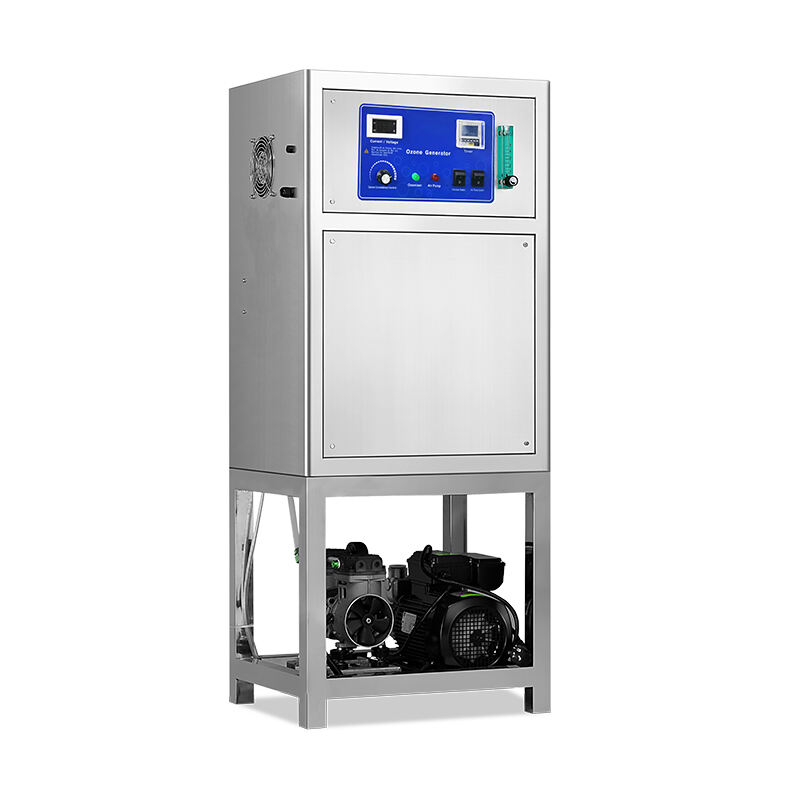The Environmental Benefits of Modern Water Treatment Technology
In an era where environmental consciousness drives innovation, ozone water systems have emerged as a groundbreaking solution for sustainable water treatment. These advanced systems harness the power of ozone, a naturally occurring molecule, to purify water without relying on harsh chemicals or leaving harmful residues. The technology behind ozone water systems represents a significant leap forward in our journey toward environmentally responsible water management practices.
Understanding Ozone Water Treatment Technology
The Science Behind Ozone Purification
An ozone water system operates by converting ordinary oxygen into ozone through electrical discharge. This process mirrors nature's own purification method, as ozone is naturally created in our atmosphere during thunderstorms. When integrated into water treatment, the ozone molecules effectively eliminate bacteria, viruses, and other contaminants through oxidation. The beauty of this process lies in its simplicity and environmental harmony – after purification, ozone simply reverts to oxygen, leaving no chemical byproducts behind.
Components and Operation
Modern ozone water systems comprise several key components working in concert to deliver clean, safe water. The ozone generator, contact chamber, and monitoring systems form the core of these installations. Advanced sensors maintain optimal ozone levels while ensuring maximum efficiency and minimal energy consumption. This sophisticated yet straightforward approach demonstrates how technology can work in harmony with natural processes.
Environmental Advantages of Ozone Treatment
Chemical-Free Purification Process
One of the most significant environmental benefits of an ozone water system is its chemical-free nature. Unlike traditional water treatment methods that rely heavily on chlorine and other synthetic chemicals, ozone systems utilize a natural oxidant that decomposes into pure oxygen. This eliminates the need for chemical storage, transportation, and disposal, substantially reducing the carbon footprint associated with water treatment.
Energy Efficiency and Resource Conservation
Modern ozone water systems are designed with energy efficiency in mind. The latest generation of these systems incorporates advanced power management features that optimize electricity consumption while maintaining peak performance. Additionally, the reduced need for chemical storage and handling facilities translates to smaller infrastructure requirements and lower resource consumption overall.
Impact on Ecosystem and Public Health
Protection of Aquatic Environments
The environmental impact of ozone water treatment extends well beyond the treatment facility. When treated water is released back into natural water bodies, it carries no harmful chemical residues that could affect aquatic life. This preservation of natural ecosystems is crucial for maintaining biodiversity and protecting sensitive marine and freshwater environments. The ozone water system's ability to break down complex organic compounds also helps prevent the accumulation of harmful substances in water systems.
Long-term Environmental Benefits
Looking at the broader environmental picture, ozone water systems contribute significantly to sustainable water management practices. These systems reduce the dependency on chemical manufacturing and transportation, thereby decreasing industrial pollution and greenhouse gas emissions. The longevity of ozone treatment equipment also means less frequent replacement and reduced waste generation over time.
Economic and Operational Sustainability
Cost-Effective Environmental Solution
While the initial investment in an ozone water system may be higher than traditional treatment methods, the long-term economic benefits align perfectly with environmental goals. The elimination of chemical purchases, reduced maintenance requirements, and lower energy consumption all contribute to significant cost savings over time. This economic advantage makes ozone treatment an attractive option for organizations committed to both environmental stewardship and financial responsibility.

Operational Efficiency and Maintenance
The environmental friendliness of ozone water systems is further enhanced by their operational efficiency. These systems require minimal maintenance, reduce the need for chemical handling and storage space, and operate with remarkable consistency. The automated nature of modern ozone systems also means less human intervention and reduced operational risks, contributing to a safer and more sustainable work environment.
Future Developments and Innovations
Technological Advancements
The future of ozone water systems looks increasingly promising as new technologies emerge. Innovations in ozone generation efficiency, smart monitoring systems, and integration with renewable energy sources continue to enhance the environmental benefits of these systems. Research into advanced oxidation processes and hybrid treatment solutions suggests even greater potential for sustainable water treatment in the years to come.
Integration with Smart Water Management
As cities and industries move toward smart water management systems, ozone water treatment technology is proving to be an ideal fit. The ability to monitor and adjust treatment parameters in real-time, combined with data analytics for optimization, ensures maximum efficiency and minimal environmental impact. This integration represents the next evolution in environmentally conscious water treatment solutions.
Frequently Asked Questions
How does ozone water treatment compare to traditional chemical methods?
Ozone water treatment offers superior disinfection capabilities while eliminating the need for chemical storage and handling. It produces no harmful byproducts and provides faster treatment times compared to traditional chemical methods, making it both more effective and environmentally friendly.
What makes ozone water systems sustainable in the long term?
The sustainability of ozone water systems stems from their chemical-free operation, energy efficiency, minimal maintenance requirements, and ability to treat water without producing harmful residues. These systems also have a longer operational lifespan and contribute to reduced carbon emissions throughout their lifecycle.
Can ozone water systems be powered by renewable energy?
Yes, ozone water systems can be integrated with renewable energy sources such as solar and wind power. This combination further enhances their environmental benefits by reducing reliance on fossil fuels and creating a truly sustainable water treatment solution.

